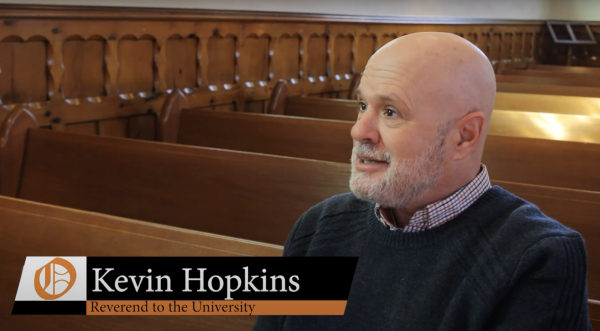Millennials face less prosperous financial future
Image by Maria Echeverry.
Most of us college students expect that we will eventually make as much or more money than our parents. The American ideal for an average 22-year-old such as me is to acquire a degree and have a career that will allow me to live a life as comfortably as the way I grew up.
According to research recently published by economists who studied tax records over several decades, though, our “American Dream” will probably not come true. Most of today’s college students are unlikely to make more money than their parents. Our standard of living while growing up may be the highest one we ever know.
In fact, the data presents a frustrating picture of what the evolving U.S. economy has become. David Leonhardt of the New York Times writes, “The index is deeply alarming. It’s a portrait of an economy that disappoints a huge number of people who have heard that they live in a country where life gets better, only to experience something quite different.”
As Americans, and millennials at that, we expect life to constantly improve. Most of us are in college to ensure ourselves a high-quality life.
There are likely by-products from this economic pattern of young people forever earning less than their parents. Because many Americans are so discouraged, they distrust the government, corporations and other large, powerful institutions.
Consider the election of Donald Trump. How did someone with brash speech, a history of bankruptcy and zero social grace become elected to the highest office in the world? Voters showed their desire for someone radically different from the political figures who have disappointed us so often in the past.
The data collected from the tax records shows that almost 90 percent of Americans born in the 1940s eventually made more money than their parents. The most recent decade to be quantified is the 1980s, and Americans born during this decade only had a 50 percent chance of making more than their parents.
The comparison to one’s parents may seem petty, but nevertheless we are all likely to compare the life we are initially given to the life we create for ourselves. It is easy to observe parents’ standards of living in comparison to our own, and it is hard to imagine millennials being satisfied if we never reach the income level we always assumed would come naturally.
How can millennials combat this sad economic truth?
Leonhardt suggests that two ways to improve our standards of living are through increasing national economic growth, as indicated by Gross Domestic Product (GDP), and by figuring out how to fix wage inequality. The data indicates that inequality in wages has damaged the American dream even more than GDP stagnation.
Researchers studying tax data ran some simulations to see what would have happened if the GDP had grown at the same rate but the problem of inequality had been eliminated. When wage gaps were taken away, the percentage of 1980s babies who surpassed their parents’ quality of life jumped to 80 percent.
“We need to have more equal growth if we want to revive the American dream,” Raj Chetty, a professor of economics at Stanford University, says.
Since most jobs are focused on specialized skills acquired through education, we need to find a way to enable lower/middle class children to gain these skills.
Due to a fear of the American dream being forever lost, voters ironically elected a president who is not likely to promote policies that reduce wage inequality. Additionally, Trump does not support free trade or many international practices that often promote increases in GDP.
Although it all seems discouraging, it is important to remember that we have survived a depression, economic recessions, wars and many other tribulations. America has still thrived far beyond expectations thanks to positivity and hope.
Maybe the key to happiness is living without comparison. I dream of being at peace with what I have in any given moment and to be thankful for blessings I have had throughout my life. The American Dream should not be based on pride and an unhealthy sense of competition that encourages the importance of merely getting ahead in life.
True happiness comes from love, family, faith and gratitude for the things one does possess. Only when our psychological outlook shifts from “getting ahead” to “gratitude” can we all truly improve the American dream.








